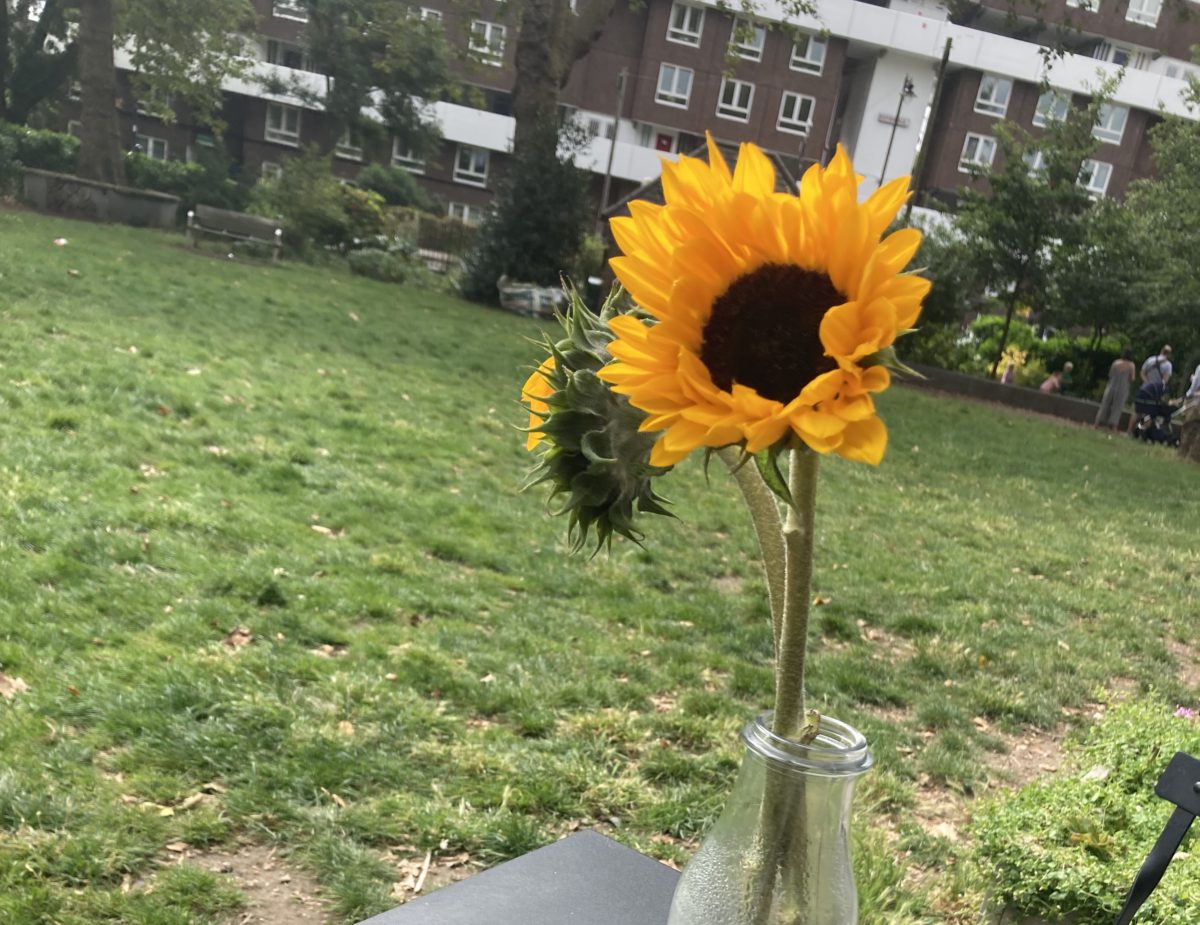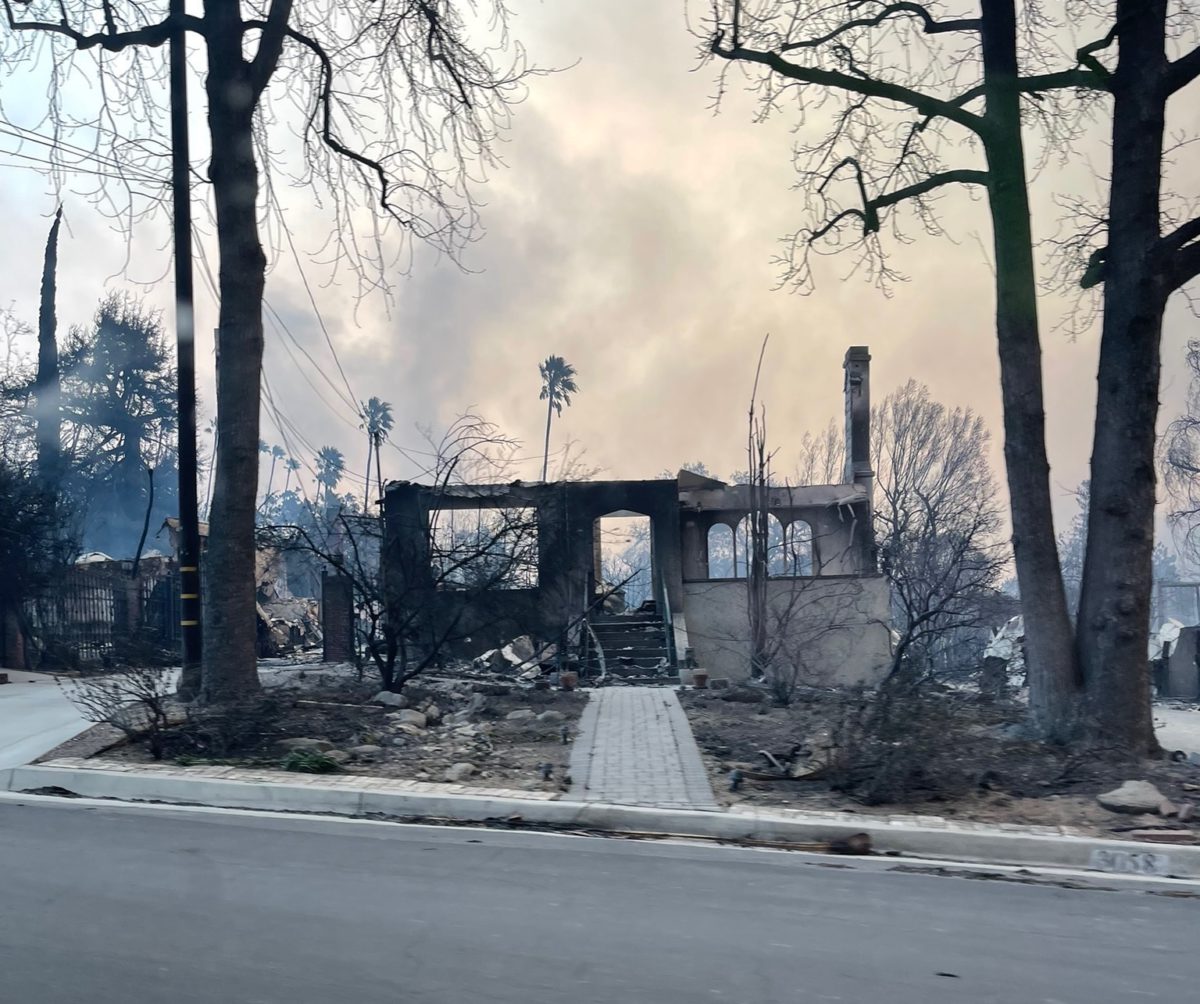Thanks to Tongo Eisen-Martin, Ferlinghetti’s long divorce just got a whole lot longer.

A guy in a Ferlinghetti poem divorces himself from civilization. He goes to San Francisco and falls in love with the waterfront. But even here, at land’s end, there are too many freeways and too much petroleum. The guy divorces himself again and plans to board a ship. He makes a call from a phone booth on a pier and says, “It’s All Over Count Me Out.” The fog lifts and the man moves through the city one last time, only to return to the phone booth where he’s expecting a call from lawyers with the final word on his divorce from civilization. The poem ends in obscurity: as his ship prepares to leave, the guy sits down in the booth and the phone rings.
The guy in the Ferlinghetti poem is just Lawrence Ferlinghetti, and earlier this year the poem that was his life ended when he left San Francisco for good. Either he answered the phone or he boarded the ship—maybe both—because on 23 February, the same day President Biden mourned the deaths of 500,000 Americans to the coronavirus, Ferlinghetti finally got his divorce from civilization. A nonconformist to the end, the New York Times reported that he died of lung disease, not the virus. He was 101 years old. The lawyers had taken their time.
Two years ago, March 2019. I’m visiting my girlfriend, Michel, in Berkeley. Inevitably we hear about the celebrations planned for Ferlinghetti’s 100th birthday (the “literary-industrial complex,” so despised by the elder poet, has fanned his centenary into a festival). Chris Felver’s documentary Ferlinghetti is screening at the Roxie Theater. The Rena Bransten Gallery is running a solo show of Ferlinghetti’s paintings. At the Italian Cultural Institute you can see photos of Ferlinghetti’s travels in Italy. And City Lights is hosting two parties at its famed fort on Columbus—one celebrating the release of Little Boy, and one for the big day, the mighty century, of the Real Old Man.
Michel and I don’t make it to any of these. I’m in town only for a few days, and, as grand as Ferlinghetti is, we have things to do on planet Berkeley, like homework. But we show up at the San Francisco Public Library on 17 March to hear the City’s poets celebrate San Ferlinghetti. The saint himself isn’t there, but the Koret Auditorium is packed with old bohemians, easily identifiable in their berets, red scarves, and the free verse cheers they heckle in the middle of each reading. Neeli Cherkovski emcees, and Tongo Eisen-Martin, Kim Shuck, Jack Hirschman, devorah major, Dean Rader, and more sing their favorite Ferlinghetti and something of their own.
Back then, Ferlinghetti’s words were still new to me, and much of San Francisco’s well known arts and literary past—Kenneth Rexroth’s soirées, the iconic howl at the Six Gallery, Ferlinghetti’s own City Lights—were more myth than real in my mind. I grew up in Western Australia, far from last enchantments of Eisenhower-era 1950s urban America in which the Beats (and bohemian beatniks) coalesced in the San Francisco renaissance. But Ferlinghetti’s poems, especially those in A Coney Island of the Mind and Starting from San Francisco, remain as coolly anti-establishment as they did back then. Even cooler when Tongo Eisen-Martin resurrects them.
Unlike the other poets gathered in the library that day, Eisen-Martin is introduced before he is even in the building. When he does show up, he walks down the left side of the auditorium in a kind of weary trance, as if he’s neither stoked to be there nor unhappy about the invitation. (Apparently, Neeli says, he’d just got off a plane and come from the airport). He reads two poems. I remember hearing his voice and seeing his vision and falling into the “poet’s plangent dream” that Ferlinghetti writes of in Pictures of the Gone World. At the end of the reading, I convince Michel that we can’t return to Berkeley without stopping first at City Lights to see if they have anything by Eisen-Martin.
Of course they do. Heaven Is All Goodbyes, Eisen-Martin’s second collection, is Number Sixty-One in the Pocket Poets Series (which Ferlinghetti launched in 1955 when he was still “waiting for a rebirth of wonder,” and not so caught up on divorcing himself from civilization). I lay a copy down on the counter—the brutal cover, rendered in pastels, depicts a mother, all struck to hell with arrows, clutching her son’s hand—and the long-haired clerk manning the register says, “I know that guy!”
“Apparently, too much of San Francisco was not there in the first place,” writes a sardonic Eisen-Martin in his poem “The Course of Meal.” The speaker continues: “this is the worst downtown yet. And I’ve borrowed a cigarette everywhere / … I’ve taken many a walk to the back of a bus that led on out the back of a / storyteller’s prison sentence, then on out the back of slave scars.” And: “I left my watch on the public bathroom sink and took the toilet with me. I threw it at the first bus I saw eating single mothers half alive. It flew through the bus line number, then on out the front of the white house.”
A few weeks ago Eisen-Martin performed these lines in a long, restless reading at the San Francisco Public Library. Only the library wasn’t on Larkin Street anymore. It was in the loft of a house where he was streaming his inaugural address as San Francisco’s 8th poet laureate, a lineage that began with Ferlinghetti in 1998. From that high-up place inside some Bay Area roof, incanting his words with records and posters on show behind him, Eisen-Martin turned his address into a vibrating party of poetry stacked with all of his friends and even his brother, Biko. Like all revolutionary poets, I got the sense that I was there with him, with all of them, and I wondered if he could ever be one to settle for a simple divorce.




